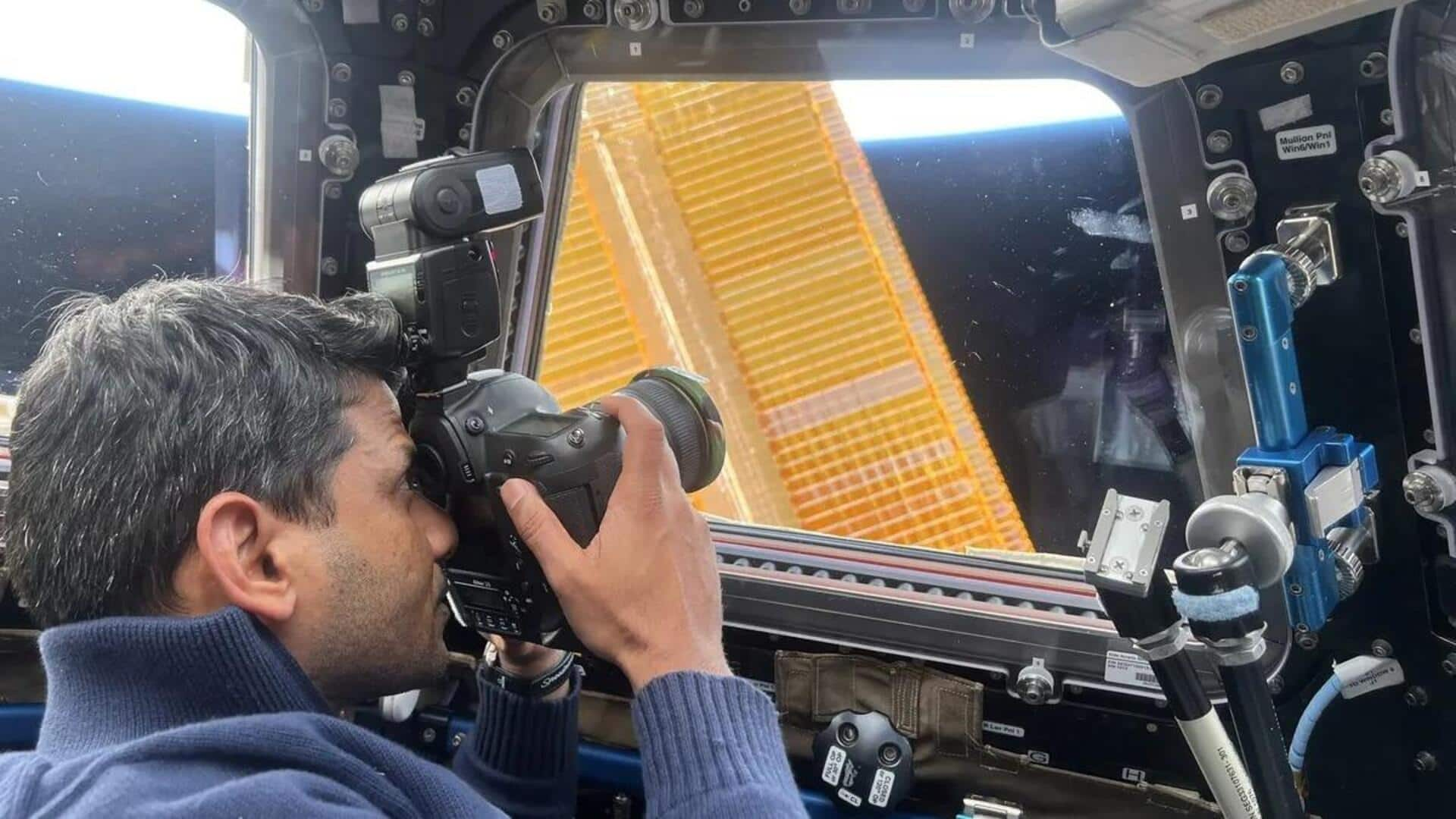
Shubhanshu Shukla completes 10 days in space, conducts several experiments
What's the story
Indian astronaut Shubhanshu Shukla has completed 10 days in space, conducting critical research for long-duration space exploration. His work included a series of groundbreaking experiments, each addressing the unique challenges of sustaining human life beyond Earth. One major focus was the myogenesis investigation, which examines how microgravity accelerates muscle atrophy. In the absence of gravity, astronauts experience rapid weakening of skeletal muscles due to molecular and cellular changes.
Muscle atrophy
Myogenesis investigation aims to unravel mechanisms behind muscle loss
Shukla meticulously documented his myogenesis investigation, which aims to unravel the precise mechanisms behind muscle loss. The ultimate goal of this research is to develop effective countermeasures that can preserve astronaut muscle health during extended missions. Recent studies have confirmed that microgravity disrupts muscle cell differentiation and metabolism, leading to increased degradation and reduced protein synthesis. Current exercise routines do help but don't fully prevent these declines, underscoring the urgency of this research.
Sustainable life-support
Microalgae promising candidates for sustainable life-support systems in space
In another experiment, Shukla deployed and stowed samples for the Space Micro Algae project. Microalgae are promising candidates for sustainable life-support systems in space due to their rapid growth and resilience. They can produce food, oxygen, and biofuel in closed habitats. Some species even thrive under extreme space conditions, efficiently recycling carbon dioxide and nutrients. The Indian astronaut also irrigated seeds for the Sprouts project, which studies how spaceflight affects seed germination and plant development.
Space farming
Insights from Sprouts project could revolutionize space agriculture
The insights from the Sprouts project could revolutionize space agriculture. After the mission, the seeds will be cultivated on Earth over several generations, with researchers analyzing genetic, microbial, and nutritional changes. The aim is to optimize crop production systems that can reliably supply food for future crews. This builds on recent successes such as Indian Space Research Organization (ISRO)'s rapid cowpea germination in space.